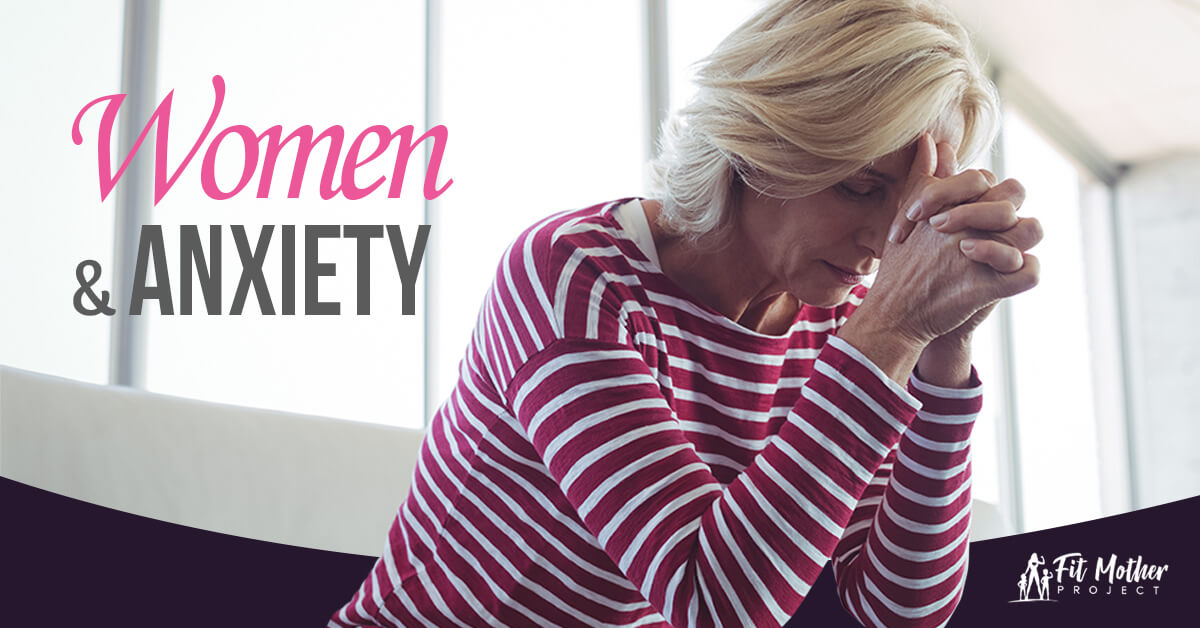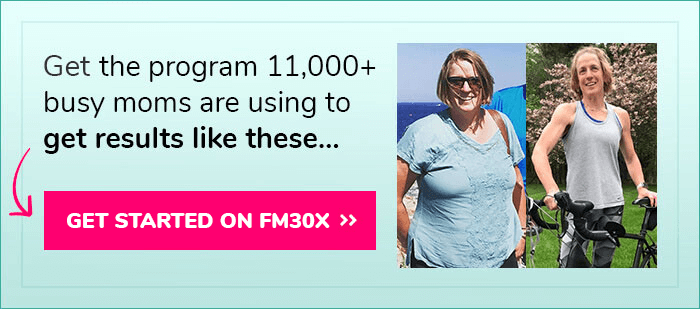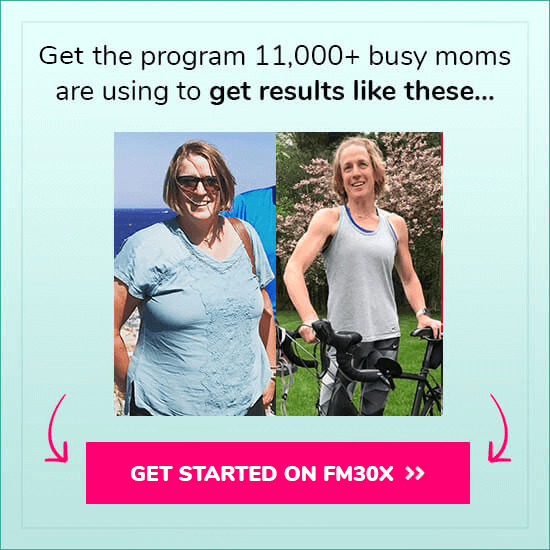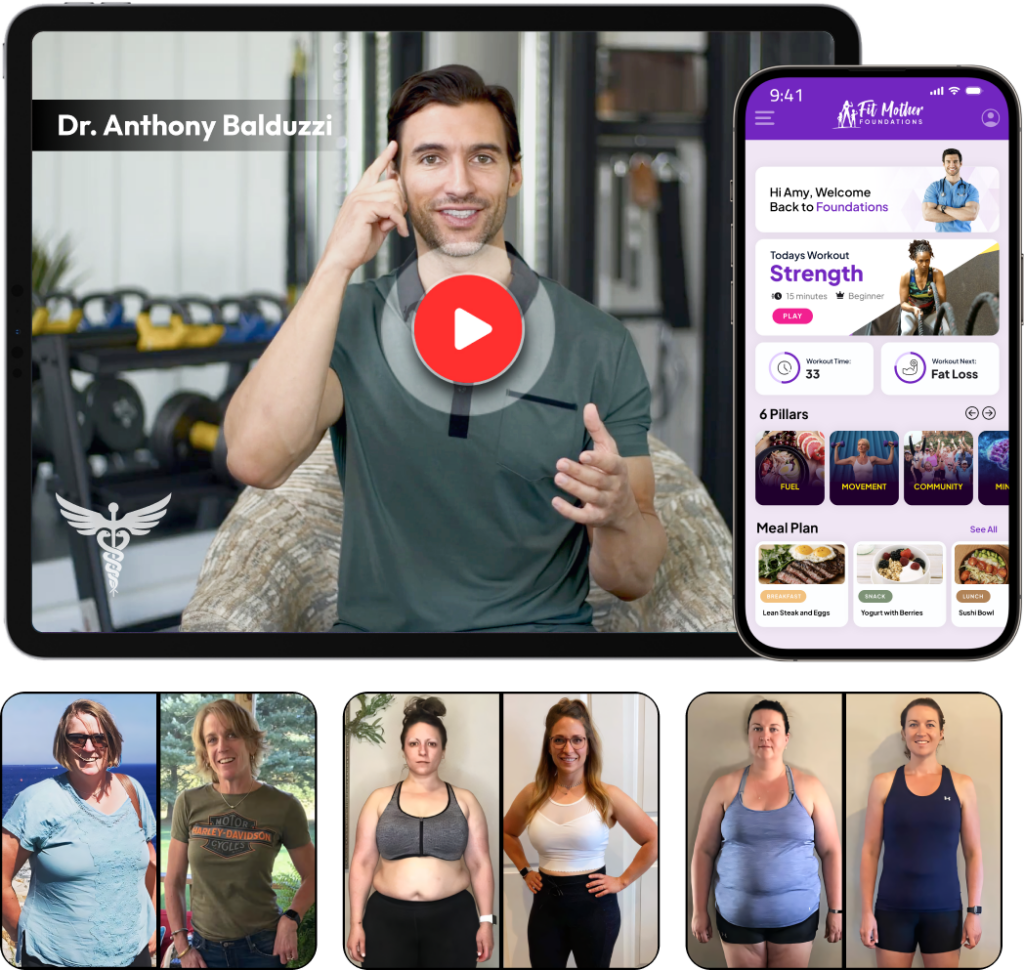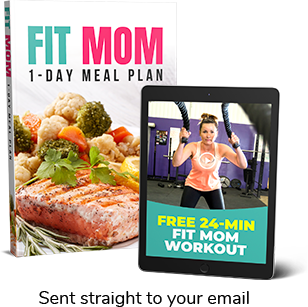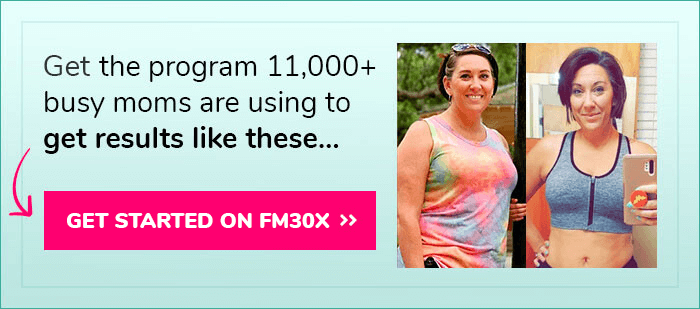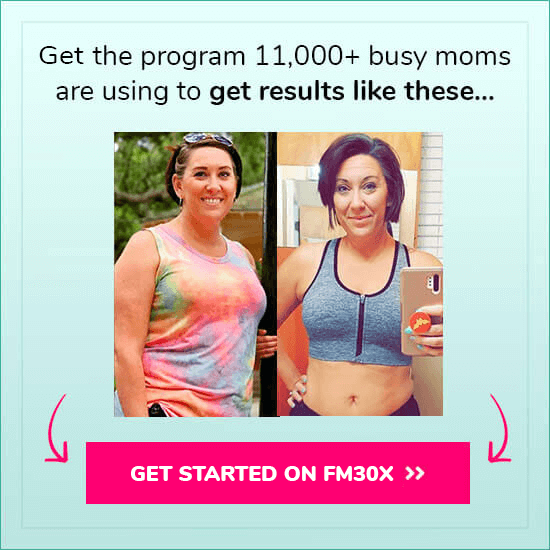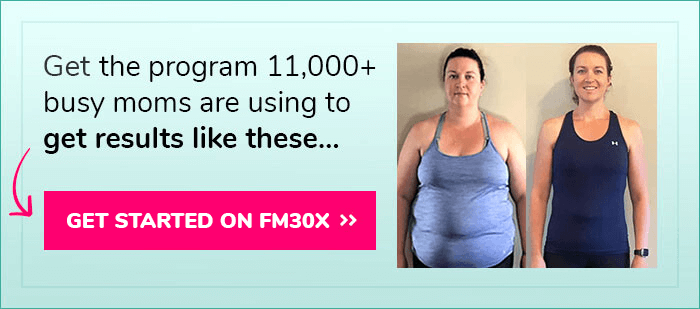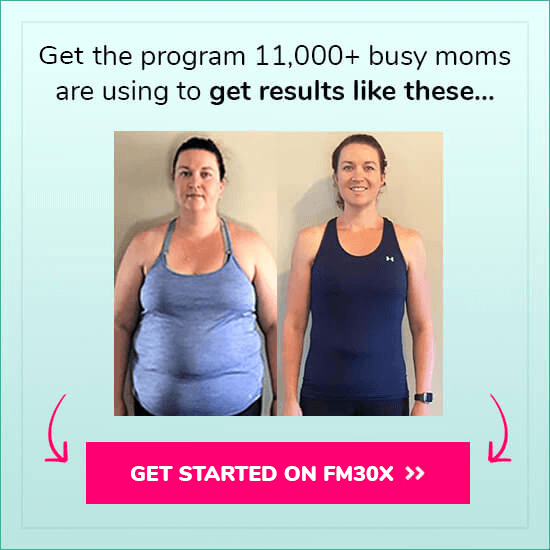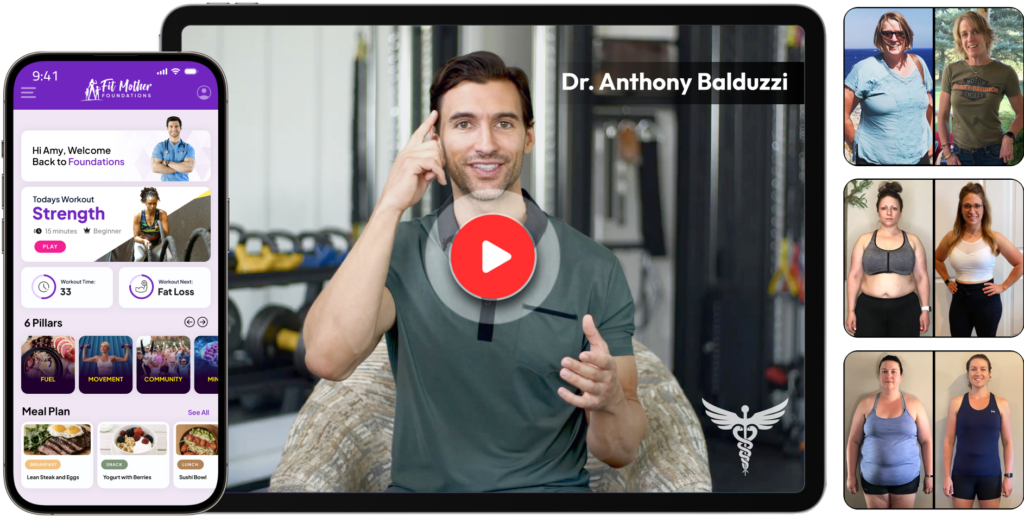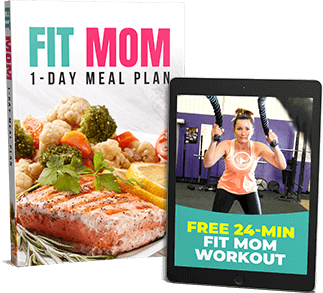There is a strong link between women and anxiety … in many cases. If you're feeling stressed, anxious, or even fearful, there are things you can do, and help is available.
According to research from the Anxiety and Depression Association of America, women are twice as likely as men to develop an anxiety disorder, which often occurs with depression or other mental health struggles.
If you suffer from anxiety or constant feelings of fear and anxiousness, you're not alone as 1 in 5 U.S. adults struggle with anxiety disorders.
If anxiety negatively affects your life and relationships, seek treatment to help you better cope with your condition. But there are things you can do in your everyday life to help.
Knowledge is power, and knowing more about women and anxiety is the key to optimizing your health and overall quality of life!
Keep reading to learn more about women and anxiety and what you can do about it.
Watch this video to learn ways to stay positive in hard times and become a happier person.
What is Anxiety?
Anxiety includes feelings of fear or anxiousness, and is often a normal part of life in certain situations.
However, if persistent worry diminishes your quality of life, relationships, family, or job performance, seek out treatment to help you enjoy life to its fullest.
Depression, which is a serious mental health condition for many people, often accompanies anxiety.
The reason women are more likely to experience anxiety than men isn't entirely clear.
It might have to do with specific stressors women face, past traumatic experiences, family history of anxiety, or hormone fluctuations.
You might feel anxious because of situations you encounter throughout life, such as job uncertainty, an unfaithful relationship, or a financial crisis.
Anxiety treatment and support can get you though the most difficult times of your life.
Don't be afraid to ask for help when you need it.
Feeling down? You may be depressed. Watch out for these symptoms of depression in women.
What Are the Symptoms of Anxiety?
If you or a loved one is at risk of anxiety, signs and symptoms to watch out for include:
- Feeling tense, restless, or nervous
- Feelings of fear, panic, or doom
- Rapid breathing
- Sweating
- Increases in heart rate
- Trembling
- Weakness or fatigue
- Sleeping problems
- Constant worry
- Difficulty concentrating
- Gastrointestinal problems
- Avoiding situations that trigger anxiety
Having anxiety can increase your risk of depression, suicide, poor quality of life, chronic pain, social isolation, or substance misuse.
It may also negatively affect your job, family, and interpersonal relationships without proper treatment.
Learn how to improve your sleeping habits, helping you to wake up feeling well-rested in the morning.
What Are Different Types of Anxiety?
Numerous types of anxiety disorders exist. You might have general anxiety disorder, a more specific type of anxiety, or a combination of anxiety disorders.
Social Anxiety Disorder
If you have social anxiety disorder, you might experience fear or anxiousness associated with social situations, particularly when you're in a large group of people.
You might fear being judged by other people, feel self-conscious, or get embarrassed when around certain groups of people.
Because of social anxiety disorder, you might avoid being around people in general and isolate yourself.
Phobias
Phobias occur if you experience symptoms of anxiety when exposed to specific objects or situations, which can provoke panic attacks in some cases.
For example, you might feel panicked while driving over large bridges, riding in an elevator, or being in tall buildings or other high places.
Medical-Related Anxiety
If you have anxiety associated with a medical condition, you might experience panic, fear, or intense feelings of anxiety associated with your condition.
Panic Disorder
With panic disorder you might have sudden intense anxiety, terror, fear, or feelings of impending doom.
With a panic attack you can experience chest pain, shortness of breath, or a racing heartbeat.
Substance-Induced Anxiety Disorder
If you feel panic or anxiety associated with misusing drugs, being exposed to toxic substances, taking certain medications, or experiencing drug withdrawal, you might have substance-induced anxiety disorder.
Generalized Anxiety Disorder
Generalized anxiety disorder is a condition in which excessive worry and persistent anxiety negatively affect your physical and mental health.
With generalized anxiety, you have difficulty controlling anxious symptoms that can occur with depression, other types of anxiety disorders, or additional mental health conditions.
Eating your feelings? Put down the comfort food and check out our top tips for managing stress eating!
What Are Anxiety Risk Factors?
While anxiety can happen to anyone, certain factors and situations increase your risk of experiencing it.
Examples include:
- Chronic medical conditions
- Stress
- Trauma
- Specific personality traits
- Family history of anxiety
- Drug use
- Alcohol misuse
- Depression
Medical conditions that can contribute to anxiety include diabetes, heart disease, thyroid problems, respiratory conditions, irritable bowel syndrome, tumors, and other medical problems.
Life situations that might promote anxiety include job loss, natural disasters, physical or sexual assault, divorce, loss of a loved one, or other types of trauma.
See your doctor if anxiety interferes with relationships, work, or parenting.
Medical intervention can help you if anxiety causes problems with drugs or alcohol, you experience suicidal thoughts, or you simply want to feel less anxious in order to thoroughly enjoy your life!
Learn how to deal with stress with these 5 stress relief techniques.
Can I Prevent Anxiety?
While there's no surefire way to prevent anxiety if you're prone to it, there are several things you can do to reduce the severity of anxiety and its symptoms.
- Seek help when you first experience symptoms
- Stay active with regular physical activity
- Stay socially connected with friends and loved ones
- Avoid alcohol and drug use
Using alcohol or drugs can make anxiety symptoms worse.
It's best to avoid these substances altogether if you suffer from anxiety, or limit alcoholic drinks as much as possible.
For women, this means consuming no more than one alcoholic drink per day.
Stay on top of your health on the weekend by using these 5 weekend diet tips!
How Does My Doctor Diagnose Anxiety?
Your doctor can let you know if you suffer from anxiety after asking a series of questions related to your condition.
They discuss how symptoms affect your mood, lifestyle, and overall quality of life.
After determining which type of anxiety (if any) you suffer from, your doctor discusses treatment options for symptom relief.
They can also treat depression, eating disorders, bipolar disorder, and other mental health problems.
What Are Anxiety Treatments?
Lifestyle changes and medical treatments often ease anxiety symptoms to give you a better quality of life.
Seek Counseling
Seek counseling with a qualified health care provider to reduce symptoms associated with anxiety, depression, or other mental health issues that can occur with anxiety.
Talk with a licensed therapist who can walk you through cognitive behavioral therapy strategies and help you overcome anxiousness or other life obstacles.
Your therapist can teach you specific skills needed to overcome unrealistic fears and return to normal everyday activities you once avoided — especially social situations.
Therapy can also help you overcome past trauma associated with specific types of anxiety and depression.
Take Medications if Necessary
Taking certain medications can offer relief for symptoms of anxiety and depression.
Your doctor can personalize each medication regimen as needed to give you the best results.
Some medicines are designed for short-term use, while others you can take long-term to help you relax and give you a better quality of life.
Get Regular Exercise
Getting regular exercise is a natural anxiety reliever.
Because of the numerous benefits associated with exercise, aim to be physically active at least 30 minutes most days of the week.
Change up your routine often and combine strength training with aerobic and flexibility exercises.
Examples include weightlifting, yoga, kickboxing, jogging, cycling, using an elliptical machine, rowing, and stair climbing.
If you're looking for fat-burning exercises you can do at home or the gym, check out the Fit Mother Project YouTube channel for workouts that will help you get and stay in shape for life.
Learn how to create a healthier lifestyle and body with these 5 actionable tips!
Lose Weight if You're Overweight
Believe it or not, being overweight can contribute to anxiety and depression.
You might be self-conscious in social situations, feel down in the dumps more often than you'd like, have fear of being judged, or experience anxiousness in situations that draw attention to yourself.
Weight loss is possible at any age, but you don't have to do it alone.
The expert Fit Mother Project team can help you effectively get and keep excess weight off for a lifetime using healthy lifestyle strategies.
They offer custom meal plans, fat-burning workouts specifically designed for busy moms, motivational support, health coaching, and much more.
In just 6-weeks on our FOUNDATIONS Program, you'll transform your health and body, for the rest of your life!Join our 6-Week Program...
You'll Gain Health for Life!
Adopt Healthy Eating Habits
Adopting healthy eating habits is one of the best ways to maintain exceptional health and wellness.
It reduces your risk of developing anxiety because of weight gain, obesity, fatigue, high blood pressure, heart disease, diabetes, or other chronic health issues.
Aim to eat fruits or vegetables at each meal.
Fill half of each plate with leafy greens or other non-starchy vegetables.
Focus on nutritious protein foods (chicken, fish, seafood, eggs, tofu, etc.) and heart-healthy fats. Examples include avocados, olives, olive oil, other plant-based oils, salmon or other fatty fish, nuts, seeds, and nut butters.
Consume three servings of low-fat milk, Greek yogurt, cottage cheese, other dairy foods, plant milk, or additional dairy-free, calcium-rich alternatives.
Drink at least 12 cups of water or other fluids throughout the day, and drink water before meals if weight loss is your goal.
Let us show you how you can start losing weight this week! We'll email you our free meal plan & workout + email coaching.GET YOUR FREE
“FIT MOM” JUMPSTART
(MEAL PLAN + WORKOUT)
Properly Manage Stress
Managing stress is one of the best ways to relieve anxiety symptoms naturally.
Ways to reduce stress in your life and help you better relax include yoga, meditation, massage, being outdoors, taking a vacation, tai chi, and regular exercise.
Lighten up an overly busy schedule too.
For example, if your daily routine is packed with kids' activities, work, and numerous other extra curricular obligations you simply can't keep up with, lighten the load whenever possible.
Ask friends or family members for help when you need it, to avoid burnout and health complications associated with it.
If a financial situation is causing stress and anxiety, consider seeking help from a financial advisor.
Doing so can help you consolidate debt, lower your monthly payments, and restructure budgets to help you gain better control of finances — and unnecessary stress and anxiety.
Get Better Sleep
Anxiety can exacerbate sleeping problems, which in turn may negatively affect anxiety symptoms and your health.
To break this often-debilitating cycle, prioritize sleep.
Set a regular sleep schedule, sleep in a cool dark room, try reading or meditating before bed, and see your doctor if you suffer from sleep apnea.
Signs you might have sleep apnea include waking up tired, snoring, gasping for air during sleep, and waking up multiple times during the night.
A sleep study can help your doctor diagnose sleep apnea.
Get a good night's sleep to maximize energy levels, enhance workouts, and lower your risk of overeating and unwanted weight gain.
Women need at least 7-9 hours of sleep each night to maintain optimal health.
Go to bed and wake up at the same time each day whenever possible.
In just 6-weeks on our FOUNDATIONS Program, you'll transform your health and body, for the rest of your life!Join our 6-Week Program...
You'll Gain Health for Life!
Avoid Drugs, Alcohol, and Tobacco Products
Drugs, alcohol, and smoking can make anxiety symptoms worse, and as you know these substances have addictive properties.
If you drink, use drugs, or smoke in response to anxiety, you can become victim to a vicious cycle of self-destruction.
It's best to avoid these substances entirely if you can, especially if anxiety is taking over your life.
If you have trouble breaking addictive habits, see your doctor about referrals for counseling, support groups, prescription medications, or other treatment options for addiction.
Limit or Avoid Caffeine
Caffeine can worsen anxiety, so if you're consuming a lot of it, try cutting back to better manage your symptoms.
If you do include caffeine in your daily routine, stick with coffee or unsweetened tea and drink it in moderation.
Avoid soda and other caffeinated sugary drinks entirely if you can.
In just 6-weeks on our FOUNDATIONS Program, you'll transform your health and body, for the rest of your life!Join our 6-Week Program...
You'll Gain Health for Life!
Women and Anxiety: Finding Relief
Anxiety can feel debilitating, which is why taking steps to seek treatment soon after you experience symptoms is crucial.
Do what you can to relieve anxiety at home with lifestyle changes and natural therapies.
Don't be afraid to see your doctor for counseling or medication prescriptions as needed, even if it's just to get you through temporary difficult times.
Women and anxiety don't have to go hand in hand.
To gain moral support and motivation for adopting healthy, anxiety-relieving habits, check out FF30X or the free Fit Mom 3-Day Weight Loss Jumpstart.
When you sign up, you have access to custom meal plans, fat-burning workouts for women, private social media group access, recipes, newsletters, and much more.
Knowing more about women and anxiety, conquering your fears, and being part of the Fit Mother Project community can drastically change your life!
Erin Coleman is a registered and licensed dietitian with over 15 years of freelance writing experience. She graduated with her Bachelor of Science degree in nutritional science from the University of Wisconsin-Madison, and completed her dietetic internship at Viterbo University in La Crosse, Wisconsin. Prior to beginning her career in medical content writing, Erin worked as Health Educator for the University of Wisconsin-Madison Department of Internal Medicine. Her published work appears on hundreds of health and fitness websites, and she’s currently working on publishing her first book! Erin is a wife, and a Mom to two beautiful children.
Fit Mother Project is the answer you’ve been looking for. Inside the program, you’ll receive: Our Fit Mother 30X Program (FM30X) is the answer you’ve been looking for. Inside FM30X, you’ll receive: The FOUNDATIONS Program is created by Dr. Anthony Balduzzi for Women 40+ who want Lifelong Health. In just 6-Weeks following FOUNDATIONS, you'll experience: FOUNDATIONS has transformed 60,000 lives! Are you ready to experience true lasting health & results?If you’re a busy mom who wants to finally lose weight,
get healthy, and actually keep the pounds off for good,
this is the simple program you’ll love sticking to…
If you’re a busy mom who wants to finally lose weight,
get healthy, and actually keep the pounds off for good,
this is the simple program you’ll love sticking to…
LEARN MORE ABOUT FM30X »
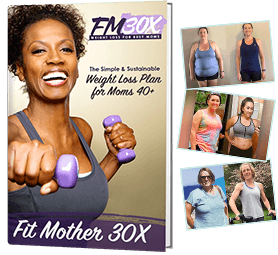
Learn More About FM30X

Join our 6-Week Doctor Designed Health Program.
You'll Gain Foundational Health for the Rest of Life.
*Please know that weight loss results & health changes/improvements vary from individual to individual; you may not achieve similar results. Always consult with your doctor before making health decisions. This is not medical advice – simply very well-researched info on women and anxiety.

